INSIDE ISSUE 19.23 | June 5, 2020
 BIG STORY: Pendarvis invites protesters to the Statehouse
BIG STORY: Pendarvis invites protesters to the Statehouse
NEWS BRIEFS: What unemployment could mean for S.C.’s budget
COMMENTARY, Brack: Don’t be timid about reform; Ask for more
SPOTLIGHT: The Felkel Group
MY TURN, Matthews: Silence on racism is not an option
FEEDBACK: Readers respond to open letter to racists
MYSTERY PHOTO: Good porches with flag with less than 50 stars
S.C. ENCYCLOPEDIA: Charleston riot of 1876
Pendarvis invites protesters to the Statehouse
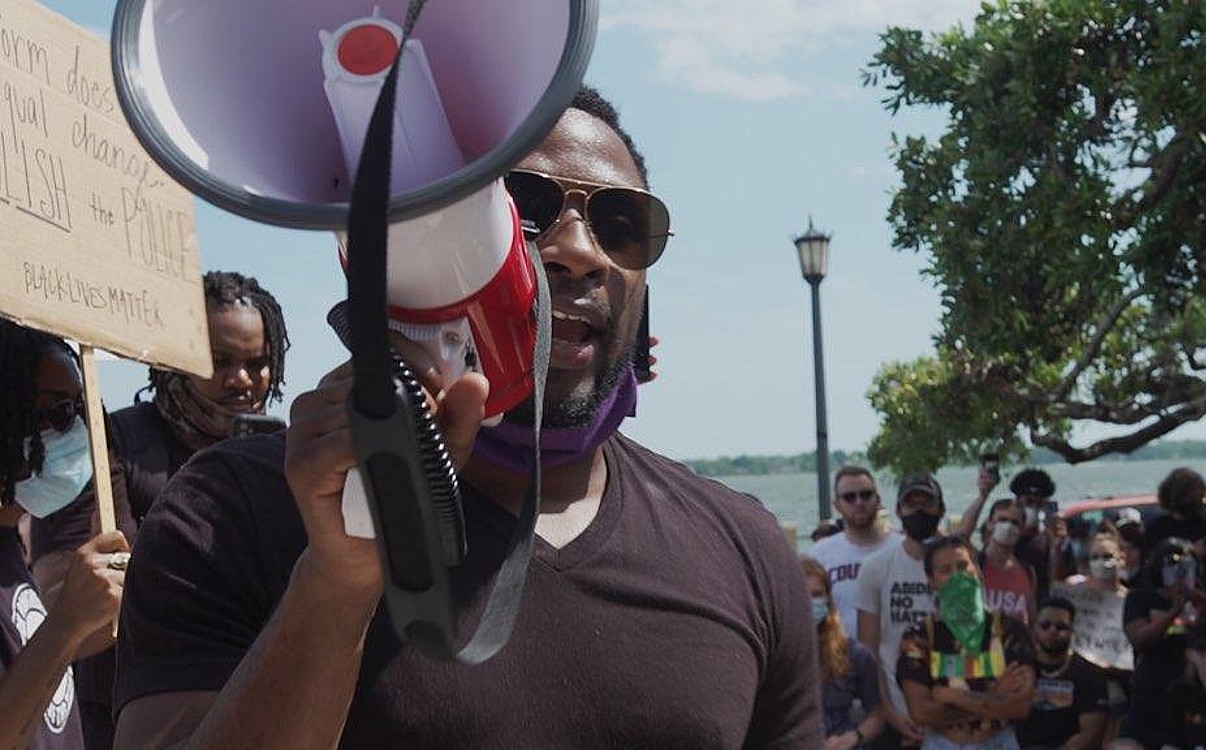
By Lindsay Street, Statehouse correspondent | Some lawmakers want to translate the protests of the moment into legislative action as the General Assembly readies to return this month for a two-day session to direct federal aid.
The aid is tied to helping state agencies rebuild following the response to the coronavirus pandemic, but some say racial disparities and longstanding inequities could begin to be addressed during the June 24-25 special session.
North Charleston Democratic Rep. Marvin Pendarvis said Thursday protesters need to “crowd the Statehouse” to affect change.
“It’s an unpopular opinion,” he added.
- MORE TO READ: The Charleston City Paper today published this commentary, “For those of us who still have breath,” by Pendarvis.
For the last week, South Carolina’s cities have witnessed protests by groups, large and small, calling for greater change in a country they maintain allowed the death of George Floyd in Minnesota police custody.
Some of their frustration seems to be linked to how South Carolina has changed little in the wake of North Charleston resident Walter Scott’s murder by a white police officer and the slayings of nine black people by a self-described white supremacist in Charleston, both in 2015.
“The protests are indicative of all of the frustration that has accumulated year after year,” said Columbia Democratic Rep. Beth Bernstein.

S.C. Appleseed Legal Justice Center Director Sue Berkowtiz said the current protests are “a turning point.”
“I don’t think there is one lawmaker who could or should ignore this anymore. I don’t think it’s going to go away,” she said. “I think people are finally tired and realizing that patience is not working. It has to change.”
The June session
House Speaker Jay Lucas’ office confirmed this week that members of the General Assembly will be called back to Columbia June 24 and 25 to address the state’s $1.9 billion share of the Coronavirus Aid, Relief, and Economic Security (CARES) Act money.
CARES Act funding to states can be spent on costs incurred by the public health emergency of COVID-19 that were not accounted for in the state budget and were incurred between March 1, 2020, and the end of the year.
Gov. Henry McMaster’s AccelerateSC task force released its recommendations for spending last week. Other than $2.4 million recommended for historically black colleges to adapt to more online learning, there is no mention of low-income and marginalized communities, groups that have been disproportionately affected by coronavirus shutdown job losses and health outcomes.
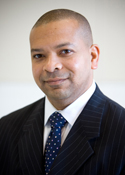
Charleston Democratic Sen. Marlon Kimpson said investment now can begin to heal the state.
“It’s important for all of us, Republicans and Democrats, to seize this as an opportunity — with an influx of $1.9 billion — to make a material difference in the lives of the people feeling pain,” he said. “And the people who feel pain are the African American and other marginalized communities, who have been left behind and made the subject of police brutality and left behind on economic opportunities.”
The Palmetto Project’s Shelli Quenga said one thing federal aid can do is expand the state’s Medicaid program.
“Right now, we have a lot of people left out and that creates a divide,” she said, adding that access to healthcare is a “core issue” affecting racial injustice.
Changes following Charleston incidents
Like the moment now, 2015 appeared ripe for change.
Just two months after a white North Charleston police officer shot and killed Scott, an unarmed black man attempting to flee, the legislature passed a bill requiring all law enforcement officers to wear body cameras.
A month after a white supremacist massacred nine black people at Emanuel AME Church in Charleston, the General Assembly voted to move the Confederate flag off of the Statehouse grounds to a state-funded museum.

Clemson Republican Rep. Gary Clary, who is not seeking reelection, said the debate on removing the flag exposed “latent racism” that remained in South Carolina.
Pendarvis, who was not a member of the House then, said a lot of energy went into removing the flag.
“I think we got fooled into thinking it would translate into more than it did,” he said. “We were able to get a symbolic gesture, we were able to get body cameras. Outside of that, has anything really changed?”
The work that remains undone
Members of the S.C. Legislative Black Caucus spoke Wednesday at the Statehouse steps, addressing changes they would like to see, including better state funding of body cameras and passing a hate crimes bill.
- MORE TO READ: Publisher Andy Brack writes in a column today that the Black Caucus needs to be bolder.
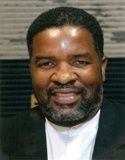
S.C. Rep. Wendell Gilliard, D-Charleston, said a hate crimes bill would go a long way toward race relations in the state. He has been a perennial sponsor of the bill. This year, the bill got important bipartisan support from then-House Judiciary Chair Peter McCoy, “but of course, then COVID-19 hit,” Gilliard said, and that all but ended the session and any pending bill with it more than two months early. McCoy has since resigned from the General Assembly to become the state’s U.S. attorney.
Gun safety was also pushed in the years after the church massacre, particularly what’s known as the Charleston loophole, which would require gun dealers to wait until a background is completed before selling a weapon. Most bills died in committee.
Clary said it’s time for the loophole to be addressed by Congress since it is too mired in partisan politics in the state. A federal bill passed the Democratic-led U.S. House of Representatives in 2019, but stalled in the Republican-led Senate.
Arm-in-Arm, a Charleston group founded to push for gun safety changes following the church shooting, is working to overcome the political divide. Founder Meghan Alexander said new legislation will be pushed in 2021 and the group will continue to hear from gun owners in the coming months.
Gilliard said another legislative step needed is allowing the removal of Confederate monuments in the state, currently protected by state law. He said the statue of John C. Calhoun in Charleston’s Marion Square, a block away from Emanuel AME Church and next to a Jewish Holocaust memorial, is insulting.
“That’s the statue of Adolph Hitler,” he said, comparing Calhoun to Hitler.
The American for Civil Liberties Union of South Carolina has begun to push for policing changes, calling for fewer police rather than more.
What comes next
Voting and talking to lawmakers about real reform can overcome the partisan struggle at the Statehouse, advocates say.

“So many of them bank on this just dying down,” Pendarvis said. “We can’t let the conversation die.”
The Palmetto Project, usually seen with its “I Voted” stickers at polling locations every election, has been active in promoting voting.
“The number one way (to change Columbia) is you’ve got to vote. We have that right and you have to ask about the issues you care about and make sure the people you’re voting for represent the issues you care about,” Quenga said.
Gilliard said he is issuing a challenge to the protesters in the streets: “Don’t just make it a moment; make it a movement.”
Pendarvis said he hoped protesters bring their current passion to the start of the 2021-2022 legislative session in January. He said 30 days of protest could affect change. In North Carolina, frequent “Moral Monday” protests at the state capitol are believed to have led to the defeat of a Republican governor in 2016.
“If you bring numbers, if you’re going to do thirty days of protest at the Statehouse, camping out, and (saying) y’all are going to hear us, then I promise you: Something will get done,” he said.
- Have a comment? Send to: feedback@statehousereport.com
What unemployment could mean for S.C.’s budget
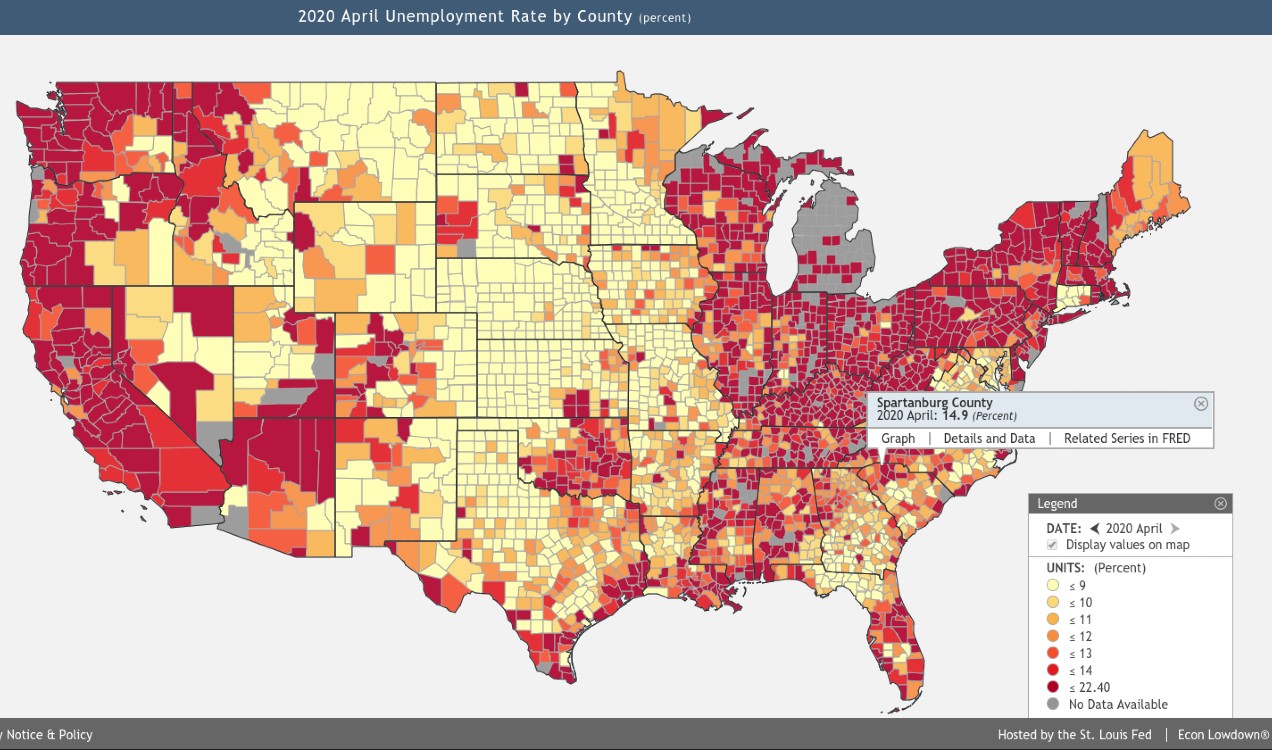
By Lindsay Street, Statehouse correspondent | Every state will lose as the pandemic and its shutdowns eat into tax revenues, according to a national expert in employment data and its implications for state economies.
“Whether your state is a tourist destination, a manufacturing center, or a financial hub, the loss of 20.5 million payroll jobs in the U.S. that month hit every industry in locations nationwide,” Michael Horrigan told The Pew Charitable Trusts this week. Horrigan is the president of the W.E. Upjohn Institute for Employment Research and formerly worked at U.S. Bureau of Labor Statistics, most recently as associate commissioner in the Office of Unemployment and Unemployment Statistics.
He said research shows that on average, a state loses about 3.7 percent of its tax revenue for every percentage point increase in the state’s unemployment rate. So for South Carolina, which saw an increase to the jobless rate from 3.2 percent in March to 12.1 percent in April and with about $825 million in tax revenues per month, about $264 million was lost that month. So far, the Board of Economic Advisers accounted for $400.1 million lost that month.
By the end of May, unemployment claims in South Carolina swelled to 559,531.
“The dramatic increases in state and national unemployment rates in April, and their likely significant understatement, means that without federal assistance, states will face enormous pressure to cut services to meet their legal obligation of a balanced budget,” Horrigan said. “Employment in state services, including education, protective services, job assistance, infrastructure maintenance and repair, among others, may be severely compromised, putting an additional drag on state economies.”
In other news:
![]() S.C. sees surge in coronavirus cases. Gov. Henry McMaster is urging “common sense,” not shutdown, as the state saw its highest jump in new cases (361) yet on Thursday. To date, the state has 12,651 reported cases of the virus. So far, 525 COVID-19 patients have died in the Palmetto State. Meanwhile, state health officials warned the public to “hunker down” and to continue to wear masks when out. Read more.
S.C. sees surge in coronavirus cases. Gov. Henry McMaster is urging “common sense,” not shutdown, as the state saw its highest jump in new cases (361) yet on Thursday. To date, the state has 12,651 reported cases of the virus. So far, 525 COVID-19 patients have died in the Palmetto State. Meanwhile, state health officials warned the public to “hunker down” and to continue to wear masks when out. Read more.
South Carolina approaches seventh day of protests. South Carolina’s cities are still witnessing groups protesting in the wake of national events — all aggressive acts from white people against black people. In a leaked call to President Donald Trump, McMaster claimed some of the protesters are paid and should be “dominated.” Richland County Sheriff Leon Lott said racist extremists were among demonstrators in Columbia. In Charleston, businesses were vandalized Saturday and then there were claims of police responding with undue force, particularly with a video depicting a kneeling protester, professing love for police officers shortly before being arrested. The video made national news. To see more photos, videos and coverage of protests in the Charleston area, visit our sister publication, the Charleston City Paper.
S.C. 9th most dependent on the federal government. South Carolina joins six of its Southern neighbors in the top 10 states most dependent on the federal government, according to an analysis by financial firm SmartAsset. South Carolina, ranked ninth, is joined by West Virginia, Alabama, Mississippi, Louisiana, Kentucky and Tennessee. South Carolina also has the 11th-highest ratio of earnings for federal workers to private workers; the 16th-highest ratio for federal funding to income taxes paid; and the 18th-highest rate for federal share of state government revenue, at 35.19 percent. Read more.
Feds award $18M to bolster police in S.C. Thirteen law enforcement departments in South Carolina will receive $18 million in federal funds to hire additional personnel. Read more.
Higher gas tax coming July 1. A 2-cent increase in gas taxes will be in effect July 1. The increase is part of the phased increase to the state’s gas tax that was passed in 2017. Read more.
S.C. congressmen push for rural broadband funding. All nine members of South Carolina’s congressional delegation, from both parties, signed a letter requesting investment in rural broadband expansion. Read more.
McMaster’s powerful chief of staff profiled. McMaster’s chief of staff Trey Walker has earned the moniker “Governor Walker” among some in Columbia. The nickname reflects the perception that the unelected official is the power behind the office. Read more.
- Have a comment? Send to: feedback@statehousereport.com
BRACK: Don’t be timid about reform; Ask for more
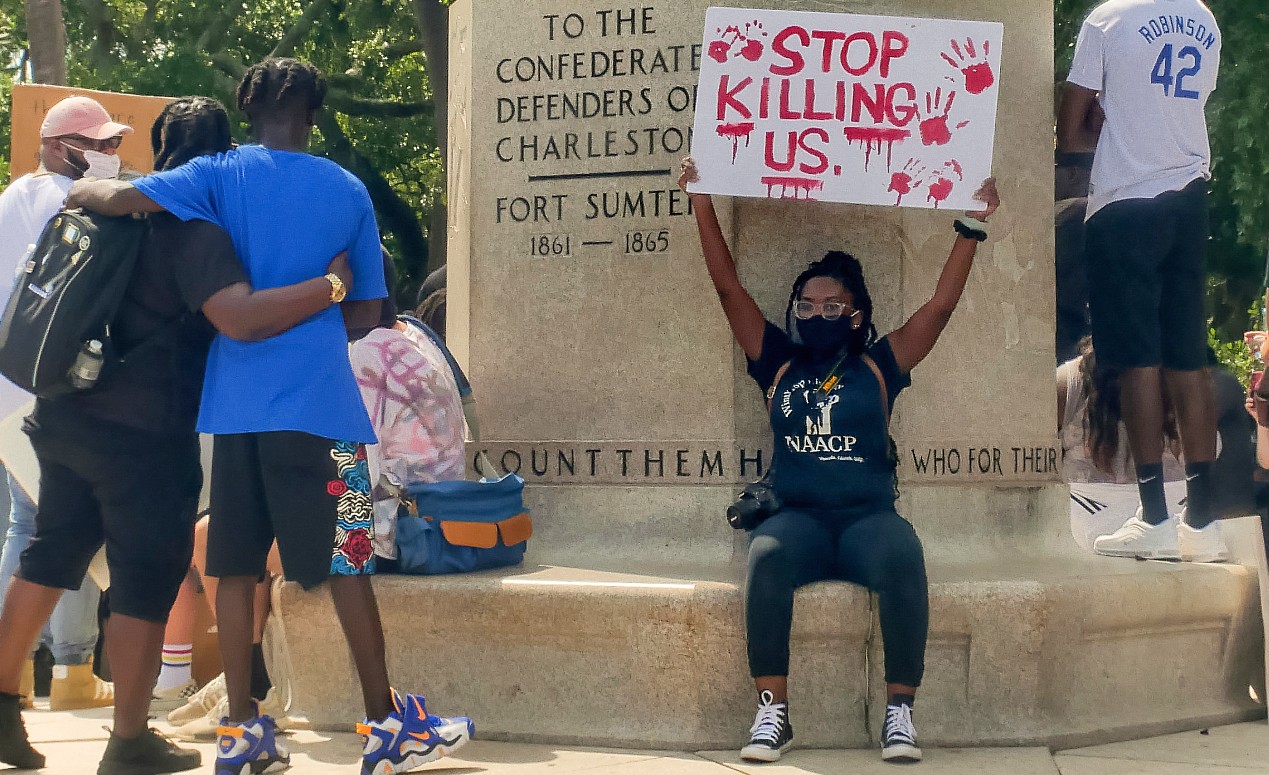
By Andy Brack, editor and publisher | Now is not the time for the state’s black legislators to be timid. Now is the time to demand much more than has been on the table in a long time.
 For the generations from slavery through Jim Crow and into modern times, South Carolina’s African American population has been beaten down, physically, mentally and emotionally. Too many black South Carolinians are born into poverty and never get out of it, mostly because of a culture of white privilege plus governance stemming from a constitution written in 1895. Too many black men are warehoused in prison for doing things that white offenders get a pass on. Too many black children grow up in a state that only pushes for a “minimally adequate education.”
For the generations from slavery through Jim Crow and into modern times, South Carolina’s African American population has been beaten down, physically, mentally and emotionally. Too many black South Carolinians are born into poverty and never get out of it, mostly because of a culture of white privilege plus governance stemming from a constitution written in 1895. Too many black men are warehoused in prison for doing things that white offenders get a pass on. Too many black children grow up in a state that only pushes for a “minimally adequate education.”
So after a week of state and national protests and riots seeking major transformations, the S.C. Legislative Black Caucus rightfully calls for change in a system that resists it. Members want passage of a long-proposed bill against hate crimes to hold accountable those who assault, intimidate, degrade and threaten others because of race, religion, color, sex or more. They want full funding and implementation of a state requirement for police to have and wear body cameras to promote accountability. And they want major police reform, such as better training, psychological testing and certification for police candidates, to protect citizen rights.
MORE TO READ: Brack wrote this column, “Return home and say a prayer for the country,” on Sunday after a riot in Charleston. It invokes the words of the late U.S. Sen. Robert F. Kennedy on the night of the assassination of Dr. Martin Luther King Jr. in 1968.
“We must stop racial profiling,” said Caucus Chair Jerry Govan, D-Orangeburg. “We must review use-of-force standards. We must hold bad police officers accountable and ensure that a police officer fired for misconduct cannot simply become a police officer in another town down the road. Oversight is critical and community policing … must be adopted in jurisdictions across South Carolina.”

He and caucus members are spot on. But it’s not enough. It’s a pretty standard stuff to ask for what you’ve been asking for in the past.
Now is not the time to be modest. Demand more of the legislature to fix decades of injustice. Now is the time to ask for what you’ve dreamed of. Once and for all, let’s push the General Assembly forward to try to get rid of centuries of degradation, fear, deprivation and wrong:
Repeal the state’s Heritage Act. Stop preventing the removal of Confederate statues and memorials. Local communities, through home rule, should be able to take down homages to the lost cause of the Confederacy more than 150 years after the war ended. New Orleans did it. Birmingham did it. Richmond’s going to do it. Charleston now should remove the looming presence of John C. Calhoun from Marion Square. Put all of these monuments in a park. But let’s get beyond daily reminders of white supremacy.
Fix the Charleston loophole. It’s been five years since nine worshippers were murdered at Emanuel AME Church in Charleston. Stop dilly-dallying around with a common-sense proposal that would make it harder for nuts to get guns.
Fix education. Instead of allowing the status quo of a “minimally adequate education” for South Carolina’s children, insist upon a high-quality education for the 21st century. Failure to educate our children properly will continue problems ingrained in a plantation mentality.
Treat people fairly. Whether in planning where flood protection goes or plants are located, don’t pick on or neglect impoverished areas. Promote equity in public policy.
End predatory lending. Help curb the cycle of poverty by ending predatory lending practices that snare too many people in downward economic cycles from which they can’t escape.
Reform prisons. In a state that finally passed a law getting rid of the shackling of pregnant inmates, South Carolina has made some strides in prison reform, but it needs to do more. Pay guards better to keep prisoners safe. Require psychological evaluations of prison staff. Fund more alternatives for non-violent offenders. Stop relying so much on a system of bail that discriminates.
All South Carolina legislators need to seize this moment. Listen to what protesters are saying about injustice, learn from them and get to work promoting change. Kicking the can down the road, again, is not an acceptable option in any way, shape or form. Do your jobs.
- Have a comment? Send to: feedback@statehousereport.com.
The Felkel Group
 The public spiritedness of our underwriters allows us to bring Statehouse Report to you at no cost. This week in the underwriter spotlight is The Felkel Group, a battle-tested public affairs and business development firm that assists corporations, associations and not-for-profits that are serious about their long-term success. The Felkel Group solves problems, crafts and delivers messages, helps organizations to manage crisis, and uses a wealth and breadth of valuable relationships to help to seal deals.
The public spiritedness of our underwriters allows us to bring Statehouse Report to you at no cost. This week in the underwriter spotlight is The Felkel Group, a battle-tested public affairs and business development firm that assists corporations, associations and not-for-profits that are serious about their long-term success. The Felkel Group solves problems, crafts and delivers messages, helps organizations to manage crisis, and uses a wealth and breadth of valuable relationships to help to seal deals.
The Felkel Group is also home to an outstanding advocacy tool called The Rap Index, a powerful intelligence tool that employs sophisticated computer modeling and profiling techniques to help organizations find their most effective advocates. To learn more about The Felkel Group and its Rap Index, go to: http://www.felkelgroup.com.
Friends and readers,
We’re proud to offer Statehouse Report for free. For more than a dozen years, we’ve been the go-to place for insightful independent policy and political news and views in the Palmetto State. And we love it as much as you do.
But now, we can use your help. If you’ve been thinking of contributing to Statehouse Report over the years, now would be a great time to contribute as we deal with the crisis. In advance, thank you.
— Andy Brack, editor and publisher
MATTHEWS: Silence on racism is not an option
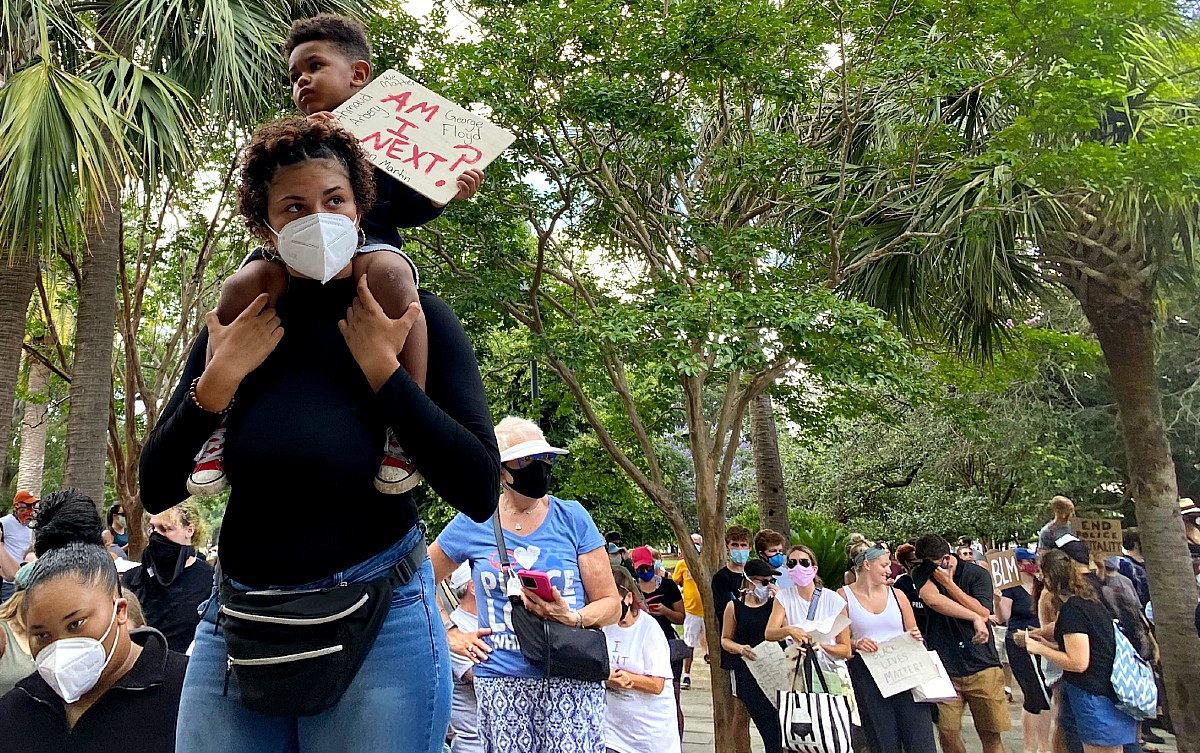
By S.C. Sen. Margie Bright Matthews | In the words of Dr. Martin Luther King Jr., “In the end, we will remember not the words of our enemies, but the silence of our friends.”

It is often said that there is more that binds us than divides us. After watching with utter disgust the murder of George Floyd and events surrounding his death, it has become apparent that after 450 years, there is still quite a bit that divides us. Race and religious bigotry are still an indelible line in the sand when it comes to education, social status, income and health disparities. I agree with Dr. King, “There comes a time when silence is betrayal.”
For all the progress we have made in America, many are still stuck in the same mindset that lifting oneself first requires bringing another down. This tragedy is our opportunity as a nation, to feel the pulse of our own sense of decency. If Ahmaud Arbery and Breonna Taylor were not enough, the old wounds from Trayvon Martin, Eric Gardner, Michael Brown, LaQuan McDonald, Tamir Rice, Walter Scott, Freddie Gray, Sandra Bland, Philando Castile, Botham Jean and Atatiana Jefferson have been reopened. This issue before us is one of humanity. The soul of this nation is at stake. What legacy do we want to leave for our grandchildren? We have to peel back the layers of injustice by communicating openly in order to understand the perspective of all of our brothers and sisters. What lens are you viewing these events through?
Here’s what I see through my lens:
- The killing of George Floyd was murder.
- All four officers should have been charged with murder at the outset because the “hands of one are the hands of all,” as the legal doctrine goes.
- All four officers should have been arrested immediately because only probable cause, as evidenced by the video, was required.
- The failure of the state to step in quickly and make the arrests speaks volumes.
- COVID-19 protections are important, but relaxing precautions are socio-economic, race-based decisions because minorities are the essential workers who will be disproportionately impacted.
The protests continue because many feel their voices are not being heard. Concerns over destroyed property continue to trump concerns over black lives and liberties. And while I don’t condone it, I do understand and share the pain and devastation that my black and brown brothers and sisters are feeling in this moment.
Where was the concern for loss of property when Colin Kaepernick kneeled in silent protest to bring awareness to this very cause? Where was the concern when he was blackballed by the NFL and lost millions? Yet, we let him down because we kept supporting the NFL. We sat back and allowed some of the owners to antagonize those players who dared to kneel. I admit that I should have done more. We silently ignored the president when he labeled Colin ‘un-American’ and disrespectful to the flag.
Where was that same concern for property loss when Michael Vick was sentenced to 23 months for his part in an inhumane dog fighting ring? Through the lens of many black Americans, Michael Vick’s treatment shows how the system views his right to earn a living versus the treatment of an animal.
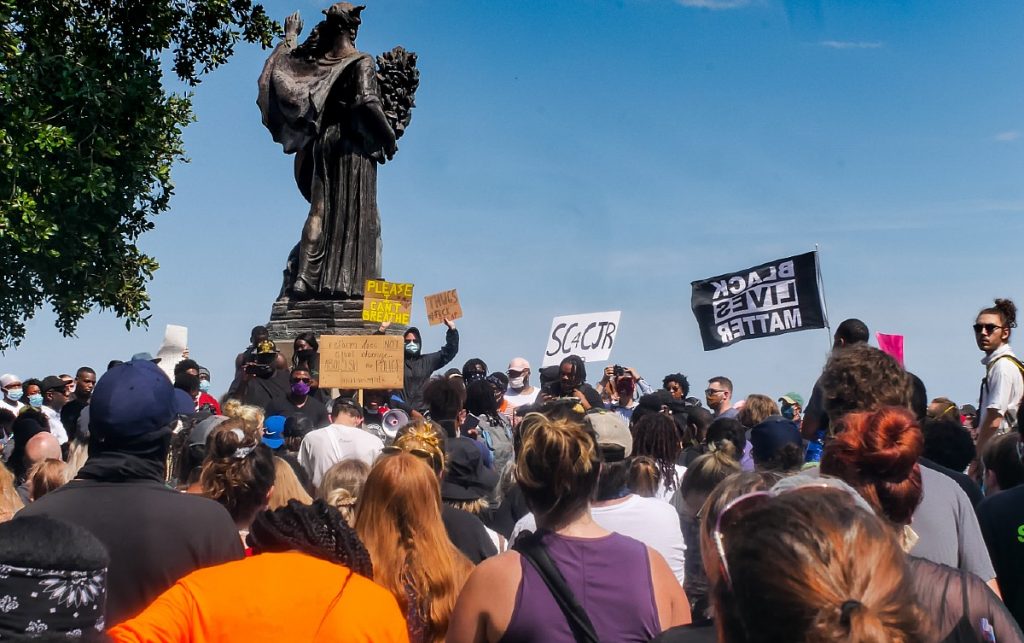
It is through many black Americans’ lenses that we only see the Confederate flag or Confederacy statutes as anything other than symbolic shackles of hatred. That flag and all it represents belong in a museum. Black people cannot comprehend why someone would want to celebrate a heritage that is offensive and oppressive to others.
With the recent rise of prominence of the Confederate flag and the heightened scrutiny of the Second Amendment, South Carolina suffered tragedies such as the loss of state Sen. Clementa Pinckney and eight other beautiful souls in Mother Emanuel AME Church in Charleston. This tragedy should have been enough to not only relocate the flag, but pass hate crimes and gun reform bills and close the Charleston loophole. Sadly, it didn’t happen. South Carolina, Arkansas, Georgia and Wyoming are the only states to turn a blind eye to hate crimes.
Why have we not heard from those running for office on this issue of police brutality against minorities? What is their position on requiring a statewide database for officers with prior bad conduct? Why do we overlook hiring officers with PTSD and failing to give them proper psychiatric care? Other professions have a reporting system to protect employers and the public. Our officers have been allowed to jump from agency to agency. This system is not fair to good officers who are out there fighting to keep us safe.
Where is the voice of the very vocal anti-abortion groups who supported personhood and fetal heartbeat bills? If you believe in every life, what is your position on the merciless killing of the already born, like George Floyd? You should be standing and marching with us to protect the right to life in all instances.
To my fellow legislators and elected officials, let your voices be heard. We have to seize this moment to make humanity our primary issue in 2020. There is no more time for making promises and looking into the future. Stop kicking this can down the road. Let us all live up to the true meaning of our religious principles. Let us honor our oath to uphold the Constitution and be courageous enough to speak out without fear of retaliation. Let’s put down party agendas and reform the criminal justice system, pass a hate crimes bill and repeal laws which place property rights over human rights.
To my friends, neighbors and constituents of all shades: If you don’t know what to say, speak from the heart first; acknowledge our pain; try to understand the pain caused by this scab of hatred that has been ripped off; do what you can to speak to and denounce these types of injustices. Know that we appreciate your support and stay in the fight with us. We were all created to endure and overcome. As King said, “Only in the darkness can you see the stars.”
Margie Bright Matthews, D-Colleton, represents District 45 in the South Carolina Senate.
Readers respond to open letter to racists
EDITOR’S NOTE: We got several letters from people on Andy Brack’s recent column, “Open letter to racists,” including a couple of negative ones from people who didn’t provide contact details. We’re happy to print signed letters in our weekly issue as long as we can verify you as the sender. More comments can be seen on the website. Here is a sampling of representative comments.
To the editor:
![]() Your letter was well put. I believe it is up to us white people to weigh in as often as possible to disarm racism. It still amazes me that people in Sun City are mostly unaware of the racism that surrounds us. Thank you for speaking out.
Your letter was well put. I believe it is up to us white people to weigh in as often as possible to disarm racism. It still amazes me that people in Sun City are mostly unaware of the racism that surrounds us. Thank you for speaking out.
— Carol Hillman, Bluffton, S.C.
To the editor:
Excellent commentary. Thank you for your open and honest challenge to racists. They WILL lose because there are more decent, caring people than there are racist bigots. We should all do or part to ensure their loss!
I often read your publication and your commentary, but usually don’t respond. This time, you hit all my buttons and I thought, “He said just what I’ve been thinking,” (but of course, you said it better). I was moved, not only by the comments, but by your courage to make those statements so publicly. Too often, in today’s world, the voices of courage and reason get buried or smacked down by voices of hysterical hatred. You render a valuable service. Please carry on, often and passionately!
— Carol Dodson, Richland County, S.C.
To the editor:
Thank you for your open letter to racists. There has been so much hate, for so long, and now we have a president who encourages it and emboldens these thoughtless and unkind morons to hurt others.
It has to end NOW! And it will not end unless white people, especially older white men like us (who make up most legislators) rise up and insist that it stop.
— David G. Phillips, Mount Pleasant, S.C.
What do you think?
We love hearing from our readers and encourage you to share your opinions. But you’ve got to provide us with contact information so we can verify your letters. Letters to the editor are published weekly. We reserve the right to edit for length and clarity. Comments are limited to 250 words or less. Please include your name and contact information.
- Send your letters or comments to: feedback@statehousereport.com
Good porches with flag with less than 50 stars
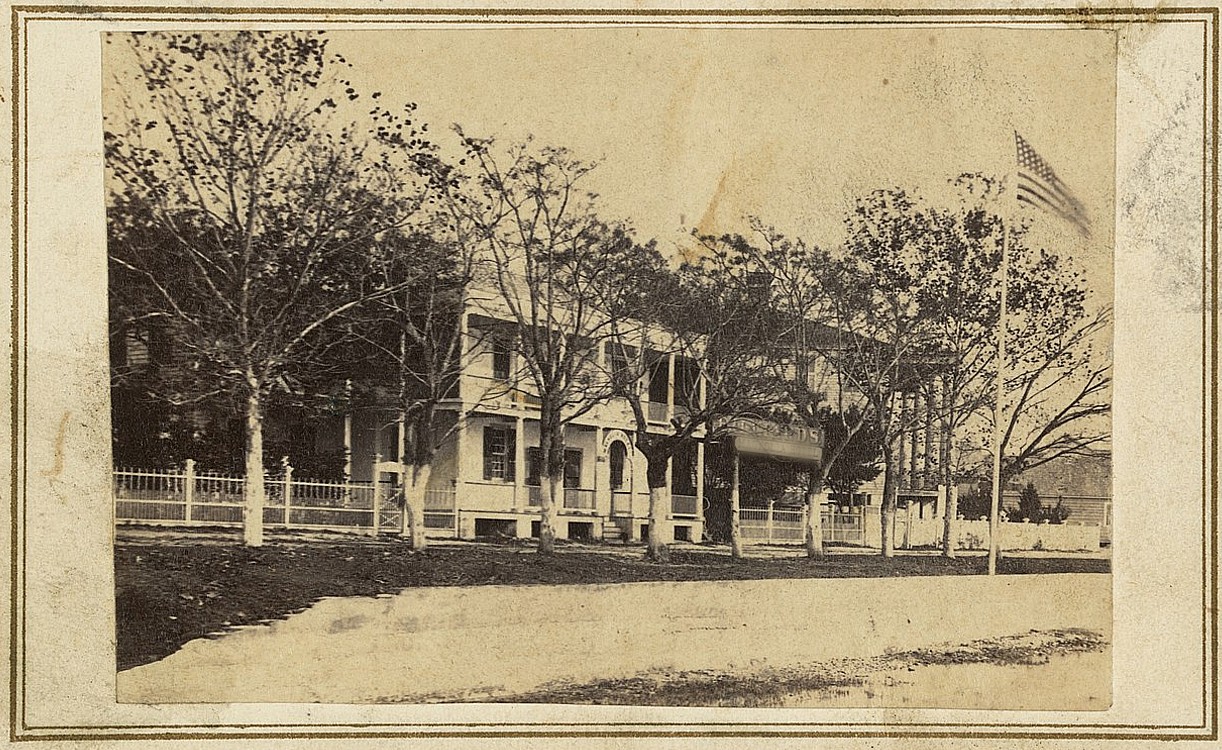
This might be a tough one. It’s a picture from the archives, but what and where is it? Send your best guess of what it is to feedback@statehousereport.com. And don’t forget to include your name and the town in which you live.
Our previous Mystery Photo
Our May 29 image, “The big cross might be a hint,” shows the Church of the Holy Cross in Stateburg. In our book, what’s notable about the building is that it is reportedly the oldest rammed earth building in the state. However, as outlined below, there’s other neat stuff about the church.
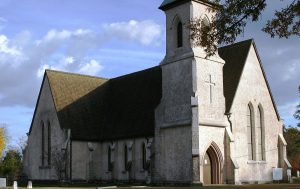 Congratulations to the sleuths who correctly identified the church: Dale Rhodes of Richmond, Va.; Mary Greene, Jay Altman and Susan James, all of Columbia; Katherine D. Beard and Robert Ariail, both of Camden; Bill Segars and Don Clark, both of Hartsville; Gary Pope Jr. of Spartanburg; George Graf of Palmyra, Va.; Faith Line of Anderson; Jacie Godfrey of Florence; and John Wilde of Greenwood.
Congratulations to the sleuths who correctly identified the church: Dale Rhodes of Richmond, Va.; Mary Greene, Jay Altman and Susan James, all of Columbia; Katherine D. Beard and Robert Ariail, both of Camden; Bill Segars and Don Clark, both of Hartsville; Gary Pope Jr. of Spartanburg; George Graf of Palmyra, Va.; Faith Line of Anderson; Jacie Godfrey of Florence; and John Wilde of Greenwood.
Greene pointed out the church’s cemetery was the final resting place of Joel Poinsett. Beard shared that the church, designed by Edward C. Jones, was built in 1850-52 with rammed earth construction of Gothic Revival styling.
Segars said the church’s significance “is that it’s a Chapel of Ease, established in 1788, for the St. Mark’s Parish, an Anglican Parish established in 1757. This building was completed for services on July 14, 1852. The unique feature of this building is that its construction method is pise de terre, or rammed earth. In other words its exterior load bearing walls are built of dirt, three-feet thick.
“The unique thing about this photo is that it must have been taken before 2008. The signage on the door and in the yard indicate that this beautiful building is non-usable due to structural issues, unsafe. Between August of 2008 and February of 2010, $2.3 million were spent restoring this edifice that cost $11,358.74 when it was completed in 1852. When Holy Cross was reconsecrated on Feb. 14, 2010, it stands as a true testimony that historical preservation is alive and well in the Bible Belt of South Carolina.”
Send us a mystery: If you have a photo that you believe will stump readers, send it along (but make sure to tell us what it is because it may stump us too!) Send to: feedback@statehousereport.com and mark it as a photo submission. Thanks.
Charleston riot of 1876
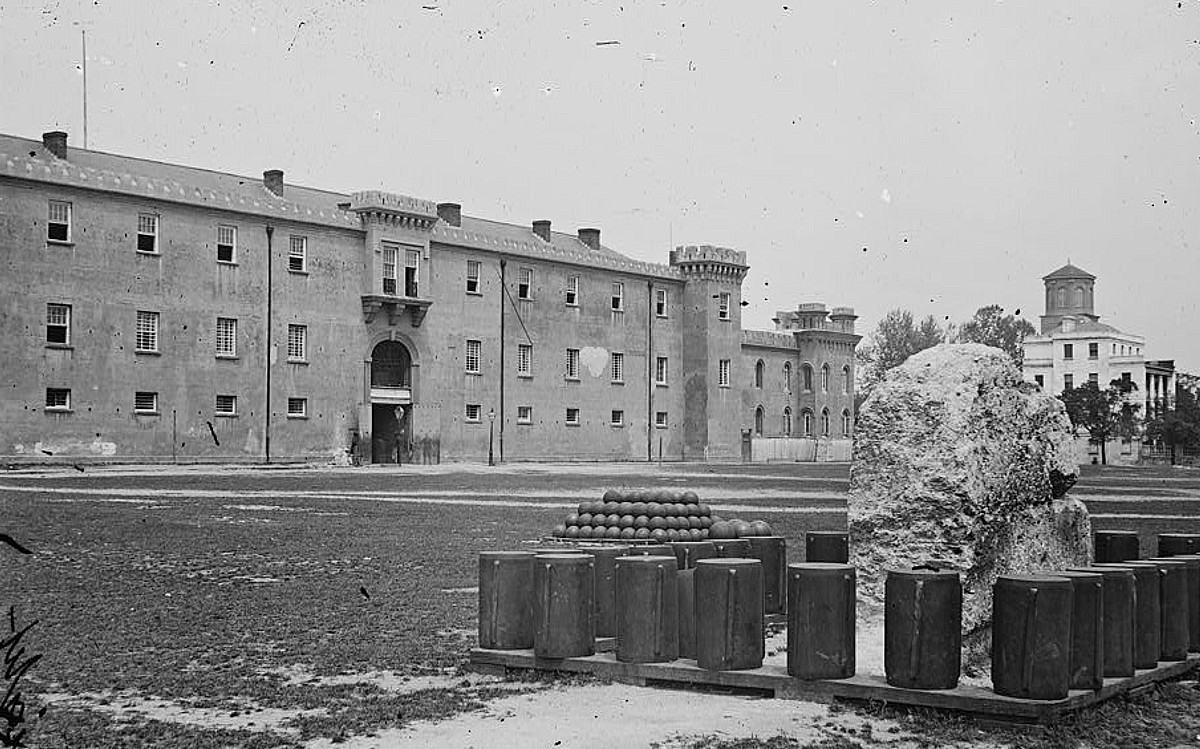
As the crucial local, state, and national elections of 1876 approached, tensions between the races in South Carolina reached a boiling point. White Democrats sought to reclaim political power lost as a result of the Civil War and Reconstruction. Using violence, intimidation, economic blackmail, and fraud, Democrats attempted to cow blacks into submission to the old order. Five riots occurred in two counties of the state, Aiken and Charleston. In Aiken County the riots were usually white-on-black violence. In Charleston County they tended to be the other way around. Charleston County black Republicans were particularly incensed by Democratic attempts to induce black voters to leave the Republican Party and vote Democratic in 1876. In Charleston, angry black Republicans resented the men from their race who changed sides, frequently threatening them with physical violence and often carrying out their threats. Democrats sought to protect their black recruits, thereby setting up confrontations with black Republican activists.
Matters came to a head in September 1876. On September 1, Democrats held a ward meeting, at which several blacks made fiery speeches denouncing the Republican Party. After the meeting, one of the speakers, a black porter named Isaac Rivers, was attacked. On September 6, fresh from their own ward meetings, black Republicans gathered at Archer’s Hall to hear speeches made by their Democratic opponents. J. R. Jenkins, a black Democrat, angered the Republicans with a verbal assault that impugned the intelligence of black women who encouraged black men to vote the Republican ticket. A group of black Republicans pursued the white and black Democrats to the Citadel green, where one white man, fearing attack, fired a pistol in the air to frighten the Republicans. Instead, the action drew hundreds of additional black men to the spot, and a riot ensued with the Democrats retreating and asking for protection from federal troops stationed at the Citadel.
As the night progressed, more and more black men roamed the city, their anger increasing. A full-scale riot ensued with blacks beating any white men they encountered. “For the next few days, Charleston was in turmoil as blacks continued to attack whites randomly, making it unsafe for whites to venture out on the streets, particularly at night.” White opposition to the violence was modest and ineffective. Federal troops did not intervene. One black and one white died in the riot, while six policemen, a handful of blacks, and at least fifty whites were injured.
The activism and aggression against whites displayed by Charleston blacks set that city apart from others in the South during Reconstruction. While southern ports such as New Orleans and Mobile likewise experienced Reconstruction era riots, blacks tended to be the victims rather than the aggressors. Charleston’s black community drew on its majority status in the city, as well as a tradition of militancy and violence that dated back to the Stono Rebellion and the Vesey conspiracy, to aggressively protect their newly found freedoms, including the right to vote and to hold political office. They had the numbers, as well as the political and racial consciousness, to do so until the end of Reconstruction in 1877.
— Excerpted from an entry by Glennon Graham. This entry may not have been updated since 2006. To read more about this or 2,000 other entries about South Carolina, check out The South Carolina Encyclopedia, published in 2006 by USC Press. (Information used by permission.)
ABOUT STATEHOUSE REPORT
Statehouse Report, founded in 2001 as a weekly legislative forecast that informs readers about what is going to happen in South Carolina politics and policy, is provided to you at no charge every Friday.
Meet our team
- Editor and publisher: Andy Brack, 843.670.3996
- Statehouse correspondent: Lindsay Street
Buy the book
Now you can get a copy of editor and publisher Andy Brack’s We Can Do Better, South Carolina! ($14.99) as a paperback or as a Kindle book ($7.99). . The book of essays offers incisive commentaries by editor and publisher Andy Brack on the American South, the common good, vexing problems for the Palmetto State and interesting South Carolina leaders.
More
- Mailing address: Send inquiries by mail to: 1316 Rutledge Ave., Charleston, SC 29403
- Subscriptions are free: Click to subscribe.
- We hope you’ll keep receiving the great news and information from Statehouse Report, but if you need to unsubscribe, go to the bottom of the weekly email issue and follow the instructions.
- Read our sister publications: Charleston City Paper (every Wednesday) | Charleston Currents (every Monday).
- © 2020, Statehouse Report, a publication of City Paper Publishing, LLC. All rights reserved.


